10 Different Types of Chinese Noodles Posted by sasha on Feb 16, 2017 in Culture, Vocabulary
There’s nothing quite like slurping up a big tasty bowl of Chinese noodles (面条 – miàn tiáo). No matter where you are in this massive country, you’re sure to find some form of noodle dish. There’s even an idiom that can be translated as “no satisfaction without noodles” (无面不欢- wú miàn bù huān). To the China newb, it’s often hard to tell the difference between the seemingly endless varieties of noodle. Telling a Chinese person that all noodles are the same is like telling an American that all hot dogs are the same. They’re not! There are far too many to try and cover in one blog post, so here are 10 different types of Chinese noodles with a brief description of each:
hand-pulled noodles (拉面 – lā miàn)
This is perhaps the most ubiquitous form of noodle found in China. No matter where you are, chances are you’re not far from a Lanzhou Lamian (兰州拉面) restaurant. Half the fun of going to one of these places is watching them stretch the dough over and over again to make the delicious noodles. Typically they’re served with beef, as these restaurants are usually owned by Hui ethnic Muslims and thus don’t serve any pork.
knife-cut noodles (刀削面 – dāo xiāo miàn)
These legendary noodles hail from Shanxi province. They’re made by taking a knife to a firm slab of dough to cut a short, flat noodle into a pot of boiling water. It’s truly an art form, and it takes years for expert chefs to master it.
hot dry noodles (热干面 – rè gān miàn)
This noodle dish is a specialty in the city of Wuhan. It’s different from cold noodles or noodles that come with soup. First, the cooked noodles are mixed with oil and then dried. They’re returned to boiled water just before they’re served and then the condiments are mixed in. Typically, they have soy sauce, a sesame paste, and pickled veggies.
fried noodles (炒面 – chǎo miàn)
If you’ve ever wondered why the word chow mein comes from, you’ve got your answer. In fact, this is one of the few dishes on Western Chinese restaurant menus that’s actually pretty similar to the original. This is a classic street food dish that you can always find for just a few kuai for a quick, cheap, and tasty lunch.
cold noodles (凉面 – liáng miàn)
Just as the name implies, this is a simple, cold noodle dish that’s also a very common street food. It’s simple and real tasty – just noodles, some chopped cucumbers, a bit of chili sauce (辣椒酱 – là jiāo jiàng) if you want, and perhaps some sesame sauce (麻酱 – má jiàng).
cold noodles (凉皮 – liáng pí)
Another type of cold noodle, the name of this one literally translates as “cold skin.” Don’t worry, though – there’s no actual skin in this one! It’s very similar to the other form of cold noodles, except these are flat and a bit thicker as opposed to the skinny, string-like noodles.
cat ears (猫耳朵 – māo ěr duo)
Once again, don’t let the name scare you away! No cats are harmed in the making of this noodle dish from Shanxi. The name comes from the shape of the noodles, which are said to resemble cat ears. Unlike other popular Shanxi noodle dishes, you don’t see this one so much outside of the province, so you’ll just have to travel there to try it!
fried sauce noodles (炸酱面 – zhá jiàng miàn)
This noodle dish is very common and popular in Beijing. It’s made of wheat noodles topped with zhajiang sauce. The sauce is stir-fried ground beef or pork mixed in with fermented soybean paste. It’s often served with some chopped up vegetables as well, usually cucumber. It’s definitely an acquired taste, so you might not like it on your first try.
Yunnan rice noodles (米线 – mǐ xiàn)
There are a few different varieties of rice noodle in China. One of the most famous is the Yunnan Crossing the Bridge Rice Noodles (云南过桥米线 – yún nán guò qiáo mǐ xiàn). It’s quite the feast, as you’re presented with quite a few plates of ingredients that you can mix up yourself. There’s a legend associated with this noodle dish that we’ll introduce in the next post, so you’ll just have to come back to learn about it!
Guilin rice noodles (米粉 – mǐ fěn)
Another very famous style of rice noodles comes from the city of Gulin (桂林 – guì lín) in Guangxi. These are quite popular all across the country, and are on just about every corner in the city that created them. Order up a bowl for around 7-8 RMB and load it up with whatever condiments you like. Usually you’ll find scallions, peppers, pickled veggies, chili sauce, and more.
Hungry for more? Unfortunately we can’t deliver any noodles to you, but we can send you our awesome newsletter!

Build vocabulary, practice pronunciation, and more with Transparent Language Online. Available anytime, anywhere, on any device.



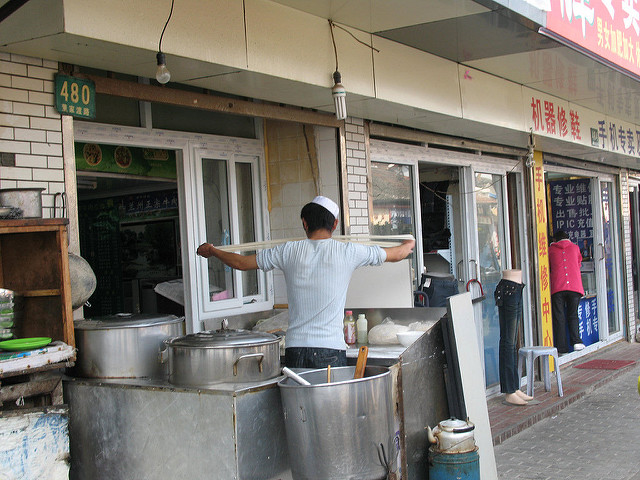
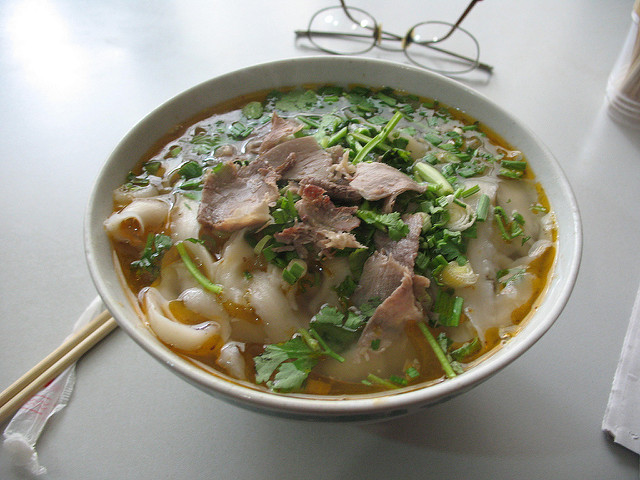
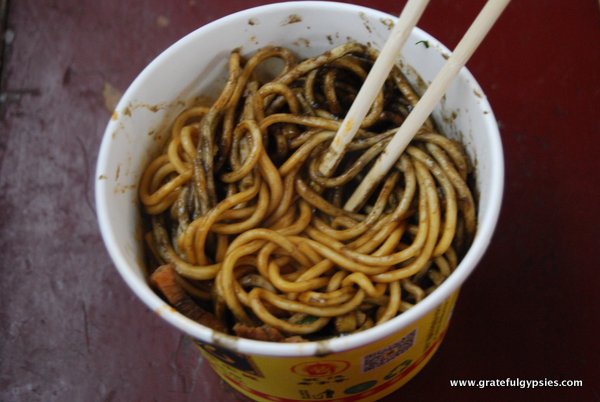
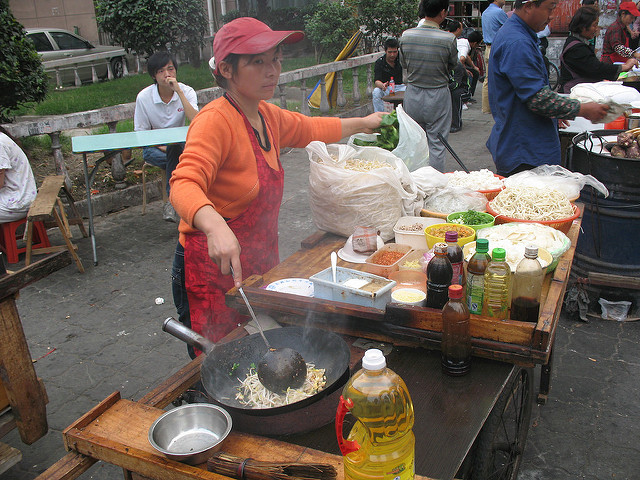
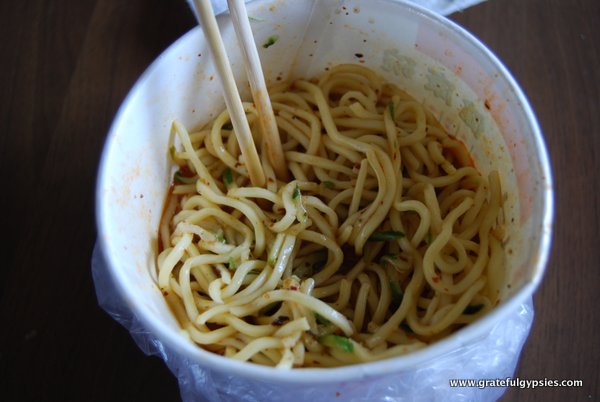
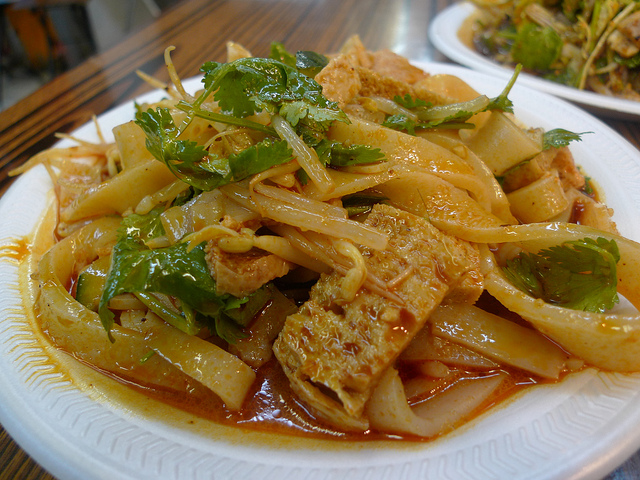
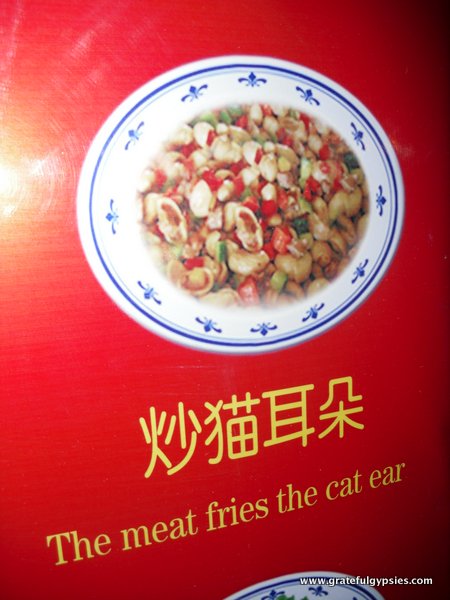
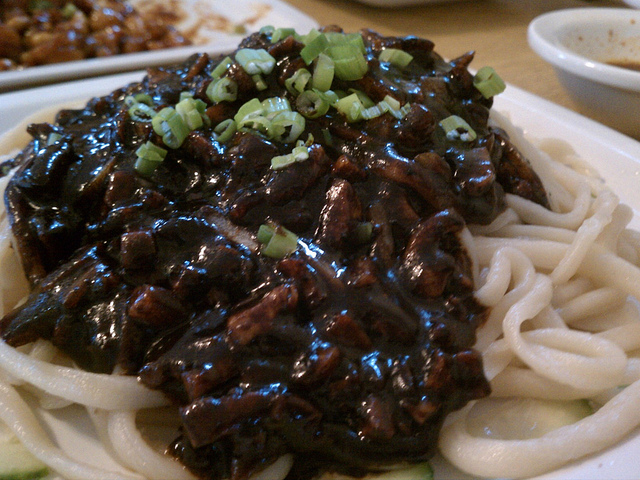

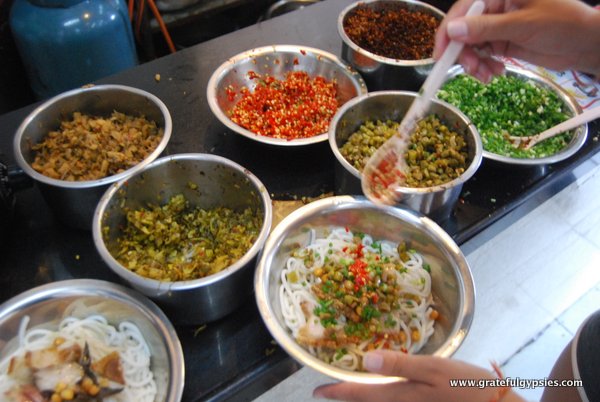

Leave a comment: